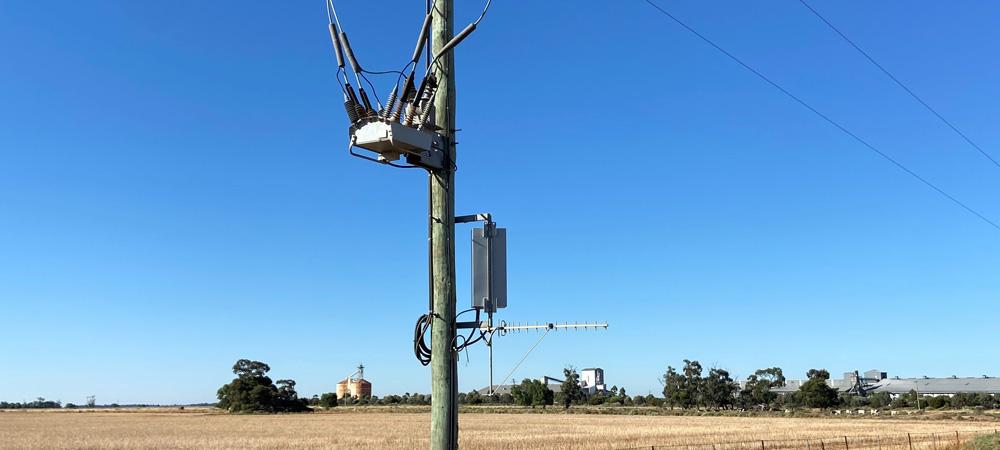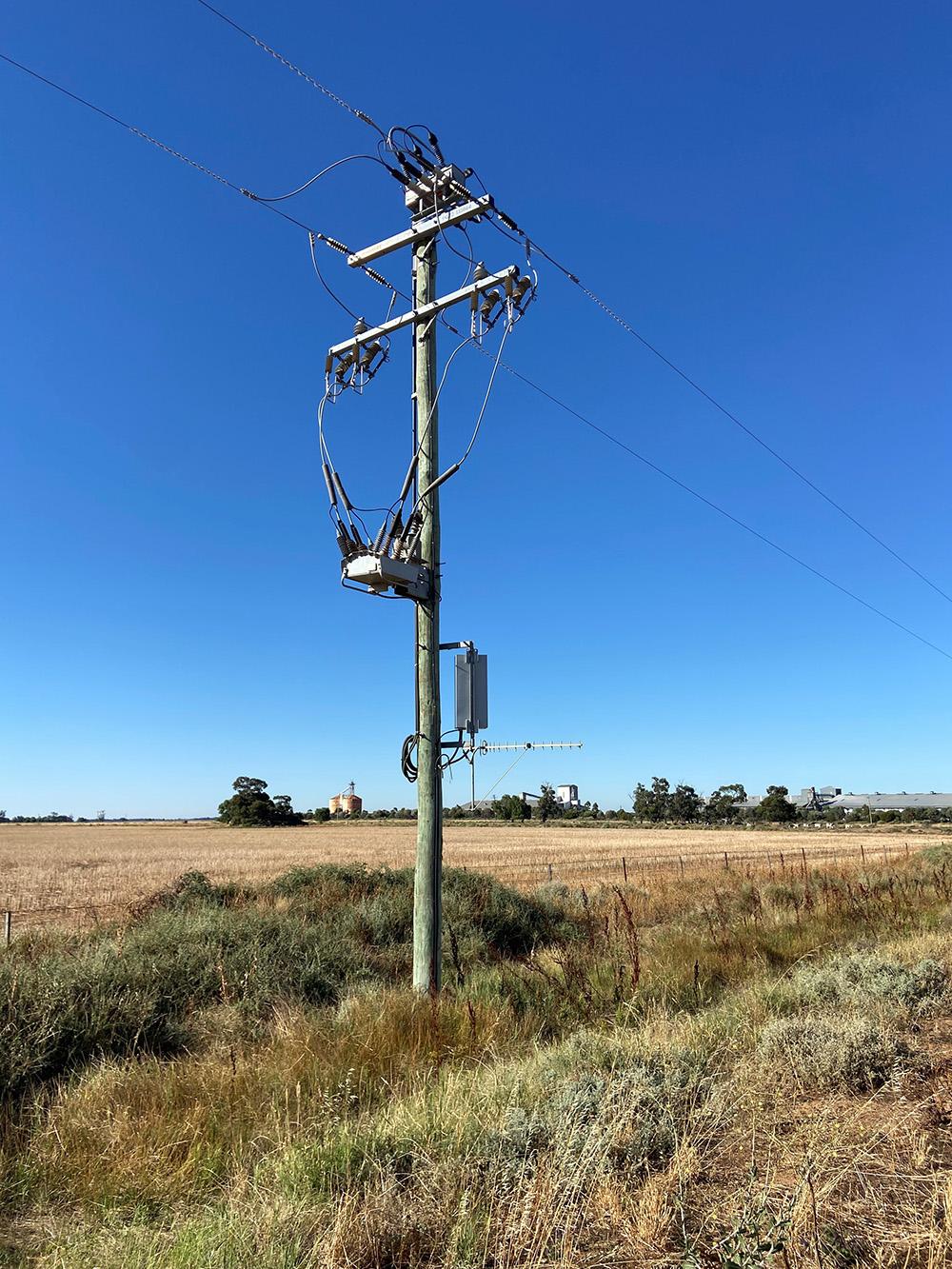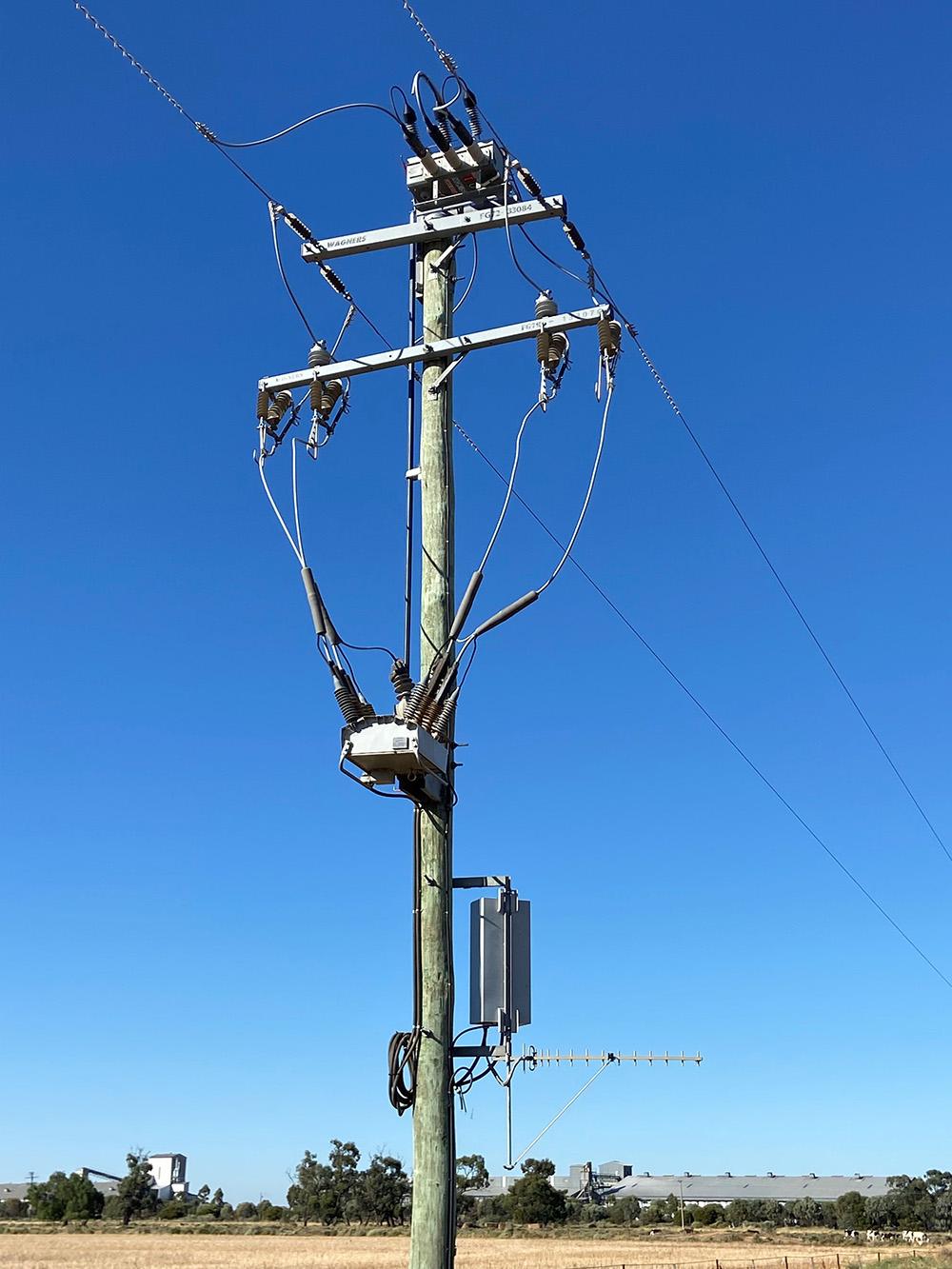Technical Article
Published 02/2023
How to protect Two Pole Single Phase Overhead Lines with Reclosers

Two pole single phase electricity distribution is common in rural areas of Australia. By taking a phase-to-phase tap from a three phase feeder, two pole single phase offers cost savings in rural distribution over three phase lines, but also offers lower resistive losses and improved safety when resistive soils are encountered.
Unlike Single Wire Earth Return (SWER) lines, the completed circuit does not rely on the earth to provide a return current path.

Protecting Two Wire Systems
Implementing protection for two wire systems is similar to the three phase equivalent. It is important to trip both poles in the event of a fault to ensure the downstream line is completely isolated. Problems occur if only one phase is interrupted, such as downstream earth faults which could be fed from either wire, or downstream phase to phase transformers being energised from the uninterrupted side. Electrical engineers must be sure to interrupt both wires in fault conditions.
Historically, protecting two wire systems was accomplished with three phase equipment, but the centre phase was left disconnected. Whilst this was a practical solution, this configuration often meant excess expenditure on components that weren’t being used – in this case the centre switchgear pole.
Driven by this market requirement, NOJA Power developed a two pole variant of the OSM Recloser, which offers a cost optimisation for equipment for this application.
Protection relaying methods applied to these two wire spurs are generally overcurrent protection. Trip time curves can be graded with downstream protective devices, such as line fuses, in either a fuse saving or fuse blowing strategy.
The unique difference is how the main backbone feeder sees faults on two wire spurs.
When a fault occurs on these spurs, the three phase main feeder will pick up an imbalance – an overcurrent on the two impacted phases. This imbalance can be detected with Negative Phase Sequence (NPS) protection in the mainline OSM Recloser.
Therefore, a mainline three phase recloser can grade with a single phase two wire spur through using NPS protection on the main line, graded with the overcurrent pickup on the two pole spur.
“We can provide these two pole reclosers in 15, 27 and 38kV variants,” says NOJA Power Group Managing Director Neil O’Sullivan.
“They are compatible with your complete range of RC control cubicles.”
Conclusion
NOJA Power’s OSM Recloser product can be used to protect SWER, Two Wire Single Phase and Three phase medium voltage distribution lines. While the switchgear pole configuration may vary, the controller could be identical. This allows utility engineers to standardise on a single control option, while addressing a multitude of distribution network protection applications. For more information, visit www.nojapower.com.au or contact your local NOJA Power Distributor.

Want to stay up to date with Electrical Distribution Technology?
Join our list for a free weekly technical bulletin, as we share our Global Electrical Engineering experience directly to your inbox.
Subscribe →